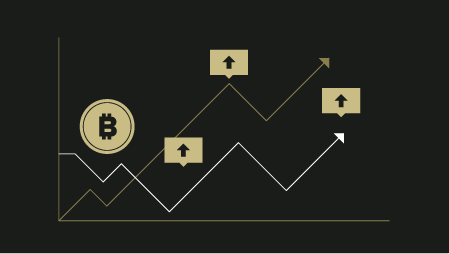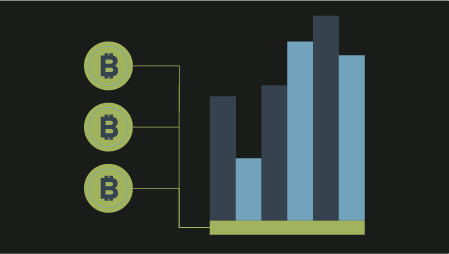A few weeks ago I attended two back-to-back blockchain events in Toronto, – the Blockchain Research Institute All-Member Summit followed by the inaugural Blockchain Revolution Global conference. Both events included a number of excellent talks and panels. One of the presentations I particularly enjoyed was Scaling Blockchain for the Enterprise: Emerging Business Models, by IBM’s Andrew Martin and Smitha Soman. Their presentation was based on their recently published report Building your blockchain advantage.
Since it first came to light a decade ago as the public, distributed ledger for the Bitcoin cryptocurrency, people have struggled to understand what blockchain is all about and what it’s truly good for. This is not unusual for potentially transformative technologies in their early stages, as was the case with the Internet, and is still the case with AI. The key question is whether blockchain has the potential to become a truly transformative technology over time. With few exceptions, the answer is positive.
The essence of blockchain, notes the report, is that the unit of competition is the networked ecosystem, no longer a single enterprise. “As blockchain adoption continues to gather momentum, organizations must approach their blockchain strategies with the same rigor and commitment as any other new and transformative strategies. They can’t just fall back on prototypes alone. They need to build a robust business case for blockchain that includes a fair incentive model to attract all the partners required for the success of their networks.”
Based on the analysis of over 25 blockchain networks in various stages of production across multiple industries and geographies, the report recommends that a company’s blockchain journey should evolve along three distinct stages: in search of value, – establishing a minimum value ecosystem; getting to scale – creating value for an overall industry; and designing for new markets, – creating entirely new markets and business models. Let me briefly discuss each of these stages.
In search of value – From “The Network is the Computer” to “The Ecosystem is the Business”
“The Network is the Computer” was the motto of Sun Microsystems, – now part of Oracle. It was used to illustrate that in the Internet age, networked systems and applications were far more powerful than any single computer.
Blockchain is now taking the power of networked ecosystems to the next level. “Because the unit of competition is the network – and no longer a single enterprise – the business case for the network and how it will grow matters as much as, if not more, than the product or service itself. We’ve observed that organizations that launch their journeys by first designing and testing minimally viable ecosystems (MVE), rather than minimum viable products (MVP), have a greater chance to be successful.”
When first organizing a blockchain, designing an MVE that equitably incentivizes all participating network members is a key challenge. To do so, it’s important to pick relatively simple-to-understand and implement use cases that can help incentivize members to join and remain in the network.
For example, e-mail and the Web played a crucial role in the mainstream adoption of the Internet in the early-to-mid 1990s. Everybody could easily appreciate the ability to easily communicate with anyone, or to access information anywhere in the world. While relatively mundane in nature, e-mail and the Web turned out to be unexpectedly useful in business and/or everyday life. Many other applications later followed across a variety of industries.
Supply chain applications are now playing such a role in the mainstream, commercial adoption of blockchains. The infrastructures, processes and ecosystems of supply chains are significantly less complex than those in financial services, healthcare, music, and other industries Their objectives are relatively straightforward: increase the speed, security and accuracy of financial and commercial settlements; track the supply chain lifecycle of any component or product; and securely protect all the transactions and data moving through the supply chain.
Blockchains’ ability to record all transactions flowing through a supply chain creates an immutable record of a product’s origin, with the potential for full transparency and traceability from source to store. A number of blockchain applications are already in or near production, including TradeLens for the shipping industry and Walmart’s food supply chain.
Generally, members of a blockchain ecosystem will see three main kinds of benefits: cost reductions, revenue growth, and smaller working capital. “As in any digital transformation, identifying areas to take out cost may be the easiest exercise, which could be why most early blockchain efforts have focused on stripping out cost… Other benefits could include brand uplift from reputably tracking goods on a blockchain, improved reliability – even in industries ripe with fraud – and reducing environmental damage to the communities they serve.”
Getting to scale – Collaborating with competitors to create value for the industry
The next step in the evolution of blockchains is the formation of industry networks. These create value by developing and operating shared industry infrastructures as well as shared processes and applications to be used by all its industry members.
Governance is the biggest challenge in creating such industry networks, which requires collaborating with other industry players, including otherwise fierce competitors. Large organizations are more accustomed to dictating terms to their ecosystem partners than to collaborating with them. “Even though competitors in an industry utility aren’t giving away what differentiates them, they often fear that they might do so. This mindset, and the likelihood that few organizations have ever cooperated with their competitors before, makes strong governance a make-it-or- break-it attribute of industry utilities.”
Another major challenge is the sheer complexity of organizing major industry-wide initiatives. For example, a few years ago, the World Economic Forum published a very good report on how blockchain can help reshape the financial services industry. The report concluded that blockchain technologies have great potential to drive simplicity and efficiency through the establishment of new financial services infrastructure, processes and business models.
However, the report also warned that transforming the highly complex global financial ecosystem will take considerable investment and time. It requires the close collaboration of its various stakeholders, including existing financial institutions, startups, merchants, government regulators, and individuals around the world. Getting them to work together and pull in the same direction is a major undertaking, given their diverging, competing interests. Overcoming these challenges will likely delay large-scale, multi-party blockchain implementations.
Similarly, healthcare, music, and government services can greatly benefit from blockchain technologies, but organizing their large, diverse constituencies will also take considerable time, investment and effort.
Designing for new markets – Creating entirely new applications, business models and markets
Finally, if blockchain is to fulfill its promise and join the Internet and AI as a major 21st century transformative technology, it must lead, over time, to the creation of innovative new applications, companies, industries and markets. “New market business models should be audacious,” notes the IBM report. “When designing the network’s path to value, organizations should consider how they can radically shift more power to the consumer or capture the long tail. Founders of new market networks may seek opportunities to exploit underutilized assets by bringing them into the sharing economy or create new partnerships.”



